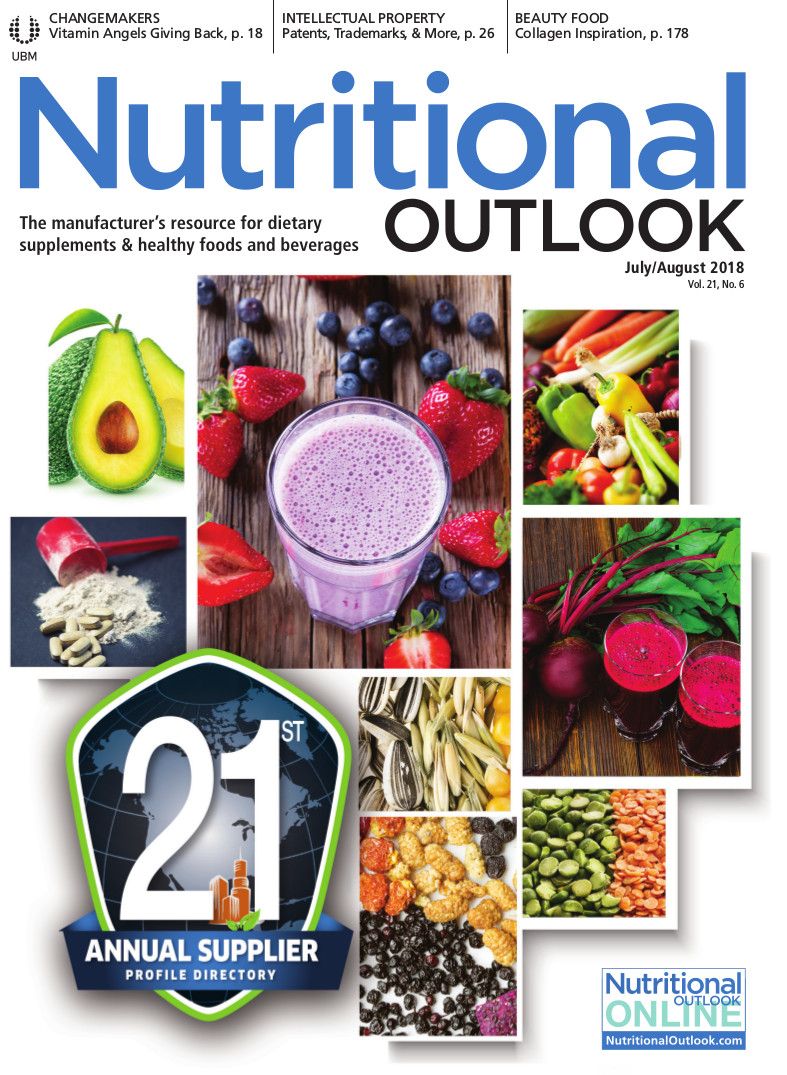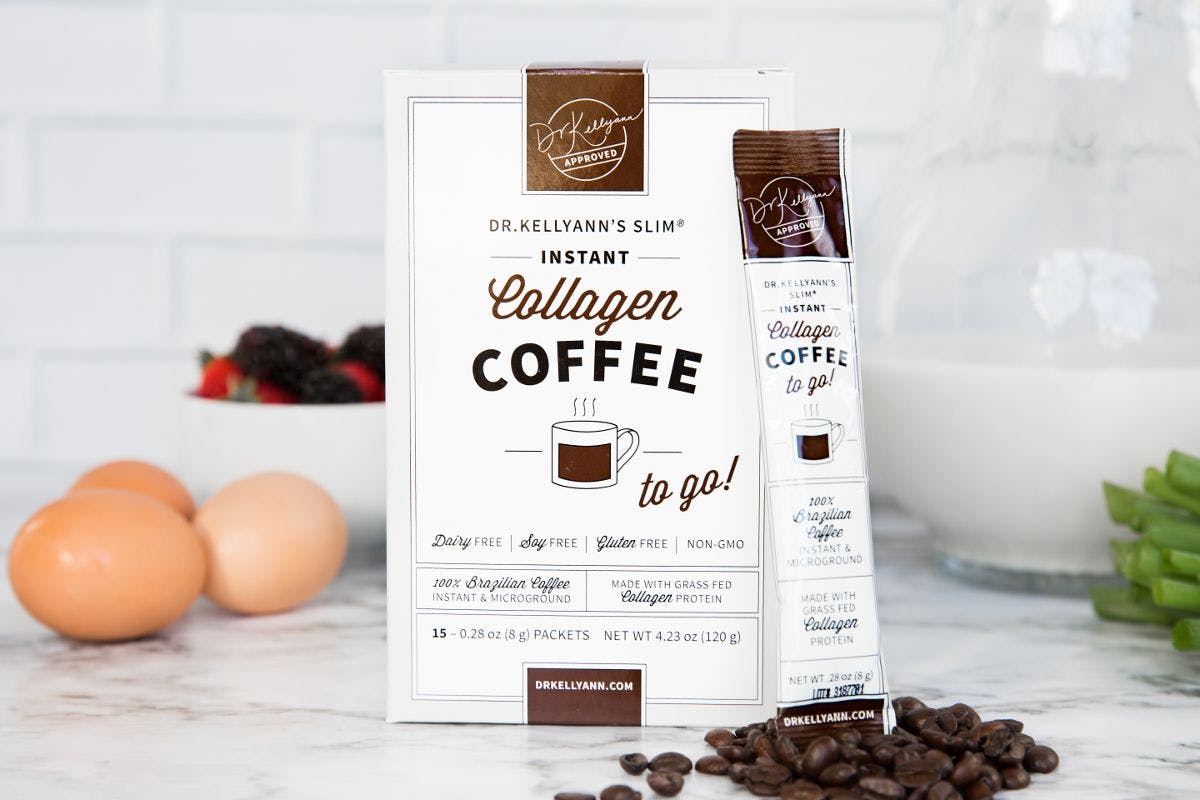Vitamin Angels is changing the way nutrition companies give back
Rather than simply acting as a typical charity, Vitamin Angels encourages corporate social responsibility within the nutrition industry.
Photo © Vitamin Angels/Sophia Billikopf

Photo: A child being given a dose of vitamin A by one of Vitamin Angels’ field partners. According to Vitamin Angels, just two doses of vitamin A per year can help strengthen a child’s immune system and fight off life-threatening diseases that otherwise stem from vitamin A deficiency.
Every year, three million children under the age of five die of malnutrition, accounting for half of all deaths of children in that age group. Malnutrition within the first 1,000 days of life also leads to stunted growth, cognitive impairment, and other developmental problems.1 According to Swiss NGO Humanium (Versoix, Switzerland), the problem of malnutrition is not a result of resource unavailability, but rather, the unequal distribution of resources.2 In other words: childhood malnutrition could be prevented through better resource allocation. One organization, Vitamin Angels (Santa Barbara, CA), is proving this to be true.
Howard Schiffer, founder of Vitamin Angels, has always had a passion for helping children. After working as a midwife in his early 20s, Schiffer transitioned into the nutrition and natural products industry where he learned how to create and market nutritional supplements. What Schiffer didn’t realize at the time was that this career move would be the start of a new social change initiative that would become his passion for 25 years of his life. Over time, he would gain the skills and connections necessary to distribute life-saving vitamins and medications to over 70 million children in 74 countries.
But he didn’t do it alone. For years, Schiffer has relied on the generous support of donors, employees, volunteers, nutrition and dietary supplement industry insiders, and over 1,200 partner agencies all over the world. It was the strength of Schiffer’s vision and his motivation to make an impact that attracted supporters to Vitamin Angels. And now, more than 20 years later, it’s this same common sense of mission and vision that is making the difference between life and death for millions of children all around the world.
How It Started: An Earthquake, a Mortgage, and a House Fire
Over the course of his 14-year career in the natural products industry, Schiffer developed not only promotional and marketing skills, but also an extensive network of industry contacts that included raw materials suppliers, manufacturers, distributors, and retailers. Eventually, Schiffer started looking for a new challenge.
“I was in my 40s, and the work wasn’t fulfilling anymore, and it became more of a business than an aspiration,” Schiffer says. “I kept thinking, ‘I should be able to do something with all of these connections.’ And then later, in 1994, an earthquake hit Northridge, California. At that point in time, I owned a vitamin company. I got a call from a relief agency who wanted vitamins for farmers’ families who had been displaced by the earthquake.”
Schiffer placed a few calls to his industry contacts, and soon enough, a crate full of vitamins was on its way to Northridge. But rather than simply go back to business as usual, Schiffer needed to know more. A debriefing session with the agency he’d assisted illustrated the immense need for vitamins all around the world-as well as the positive impact vitamins can have.
“Vitamins are recognized as one of the greatest public health inventions of the last 30 years. When someone told me that just two doses of vitamin A can prevent childhood blindness due to a vitamin A deficiency, it floored me. At the debrief, the agency told me that I have no idea how many vitamins they need. So, I just started calling up people I knew in the industry.”
Schiffer’s calls paid off. All of his contacts told him that donating vitamins and supplements was an initiative they’d always wanted to start, but a lack of know-how was a significant barrier. That’s when Schiffer realized he had the skill set to bridge the gap. Within three weeks, Vitamin Angels was up and running.
Schiffer had found new meaning. In its first year, Vitamin Angels provided 100,000 vitamins to people in need. And armed with a new sense of mission, Schiffer pushed on.
When Vitamin Angels’ rapid growth posed a challenge, Schiffer took out a third mortgage on his home to fuel the organization. When he lost that home in 2009 due to a forest fire in Santa Barbara, Schiffer and his team continued their work. They saw the need, and they refused to let circumstances dictate how and when they were able to help others:
“When we started 24 years ago, we’d often hit a point in the year where we didn’t know where the money was going to come from,” Schiffer says. “We went from serving two million children in 2005 to 70 million this year. We’ve constantly had to backfill our capacity-we had to create whole new divisions for logistics, training, and programming. But you can see the dedication our employees have. Everyone is all in.”
The Vitamin Angels Revolution: A New Approach to Charitable Giving
Schiffer says that he structured Vitamin Angels with a sales- and marketing-focused business model rather than a standard nonprofit model. Sales and marketing is his professional background, he says, and it’s this different focus that has enabled Vitamin Angels to be so effective in its philanthropic efforts.
“We realized early on that the stereotypical charity model wouldn’t work for us,” he explains. “With typical charities, you go to a donor and ask them to support your work. That model can be effective, but only on a limited scale, and it comes with a variety of inherent problems. I didn’t want to spend my days filling out countless reports, but if I took money from governments or foundations, that’s the only thing I would be doing, all day, every day.”
Schiffer knew that he wanted to spend his time on the ground in the villages that Vitamin Angels serves. So, he established a corporate partnership program that weaves Vitamin Angels into the culture at its partner organizations.
“It’s a qualitatively different model, and there’s a much bigger ask involved. Businesses are looking for partnerships with nonprofits that they can weave into the fabric of their culture in a deep way. (RED) did something similar with the (Product)RED campaign,” he says.
Schiffer is referencing (Product)RED, a charitable initiative founded by Bobby Shriver of the ONE Campaign and U2 frontman Bono. The campaign involves licensing the (Product)RED logo and branding to companies that then manufacture and sell stylized (Product)RED versions of their products. Half of the proceeds from (Product)RED are donated to the Global Fund, while the brand partner keeps the remaining half.
The Vitamin Angels approach isn’t just about charity; it’s about corporate social responsibility. Vitamin Angels engages with for-profit businesses to work together on marketing and human resources initiatives in addition to charitable giving. Rather than simply acting as a typical charity, Vitamin Angels encourages corporate social responsibility within the nutrition industry.
Expanding Reach with a Sense of Mission
Schiffer’s dedication to the Vitamin Angels mission is contagious, and thanks to a growing sense of enthusiasm for philanthropic projects in the supplement industry, a number of partners have come on board to support Vitamin Angels.
Sharon Wong, family owner and board of directors member at NOW Foods (Bloomingdale, IL), says that NOW Foods’ owners were moved early on to support Vitamin Angels by donating children’s multivitamins. “NOW has been a supporter of Vitamin Angels since 1994,” Wong says. “We’re one of two Founding Supporters. After Vitamin Angels launched their vitamin A program, we transitioned to provide large quantities of those supplements.”
Gencor (Irvine, CA) is also an ardent supporter of the Vitamin Angels mission, with an eight-year history of providing Vitamin Angels with resources. Gencor president Jith Veeravalli says that Gencor started with financial donations, but in 2014 the organization helped establish an independent NGO in India that handles Vitamin Angels activities in the country. The nonprofit organization, called OPEN (Operation Essential Nutrients), is a joint project between Vitamin Angels and Gencor.
“So far, we’ve been funding the overhead costs in India directly,” Veeravalli says. “This year, we’re expecting to give vitamin A and deworming medicine to 14 million children. We’re also rolling out a new initiative to give neonatal supplements to expectant mothers.”
But Gencor and NOW Foods aren’t the only companies that have been moved to work with Vitamin Angels. Companies like Sabinsa (East Windsor, NJ), Pharmachem (Kearny, NJ), Lonza Consumer Health & Nutrition (Basel, Switzerland), Lycored (Secaucus, NJ), AIDP (City of Industry, CA), and HP Ingredients (Bradenton, FL) have all made generous financial and in-kind donations to help Vitamin Angels fund its operations and procure vitamins.
DSM (Parsippany, NJ), a longtime Vitamin Angels supporter, for instance, is donating raw materials for vitamin A production as well as technical services. “We send teams of DSM employees to volunteer in the field so they can see firsthand the impact the program has,” says Liz Calvez, external communications manager at DSM.
Saumil Maheshvari, marketing analyst for Orgenetics Inc. (Brea, CA), says that in addition to providing financial support, Orgenetics is currently devising new ways of supporting Vitamin Angels’ work.
HP Ingredients CEO Annie Eng said in May that the company recently donated to support Vitamin Angels’ new Global Prenatal Campaign, whose goal is to “eliminate newborn mortality around childbirth due to vitamin deficiency disease by 2030.” Eng said her company chose to contribute some of its own growing sales revenue to the charitable organization, noting that “it makes sense to give back to the number-one charity that not only promotes goodwill throughout the globe-but actually saves lives.”
Schiffer says that it’s the scope of the Vitamin Angels mission that attracts supporters. “I always dream big,” he says. “When I created our goal for prenatal vitamins, I said, ‘Let’s eliminate infant mortality due to vitamin deficiencies by 2030.’ We thought we had a plan, but it turns out, 192 million pregnant women need help every year. So now we have a goal to reach at least 50 million of them by 2030. I think people are drawn to Vitamin Angels because we have a big vision.”
New Horizons: Prenatal Nutrition Goes Global
The prenatal campaign that Schiffer references is a recent initiative that is already gaining traction. Vitamin Angels’ Global Prenatal Campaign launched at the Natural Products Expo West trade show in March 2018, and Schiffer says he’s already seeing a high level of corporate support for the initiative.
“The goal is to eliminate newborn mortality due to vitamin deficiencies by 2030. We had some great support to get us off the ground, and we’re working on getting more support for it this year,” he says.
The campaign’s initial launch event, on March 8, 2018, brought together senior executives from over 60 natural products companies and yielded over $300,000 in donations.3 The funds will be used to help meet Vitamin Angels’ program commitments.
“Once we reach a child, we’re committed for at least five years,” Schiffer says. “That’s why we have to buy so much more product now; we can’t wait and hope that we’ll have the product donated.”
The organization is working hard to ensure it can reach even more children and mothers, with a variety of internal improvements underway. Vitamin Angels recently produced an e-learning training program for its volunteers and partner agencies, and is building up its capacity for data monitoring and analysis.
For Schiffer, though, the mission always comes first.
“When we engage with companies, we aren’t asking for a donation. We don’t just want a check. We’re asking to be woven into the fabric of the organization. A lot of our partners tell new recruits that they work with Vitamin Angels, which is a big HR draw for the Millennial workforce.”
Also Read:
Angels in their own way: How other industry leaders are lending a helping hand
In addition to Vitamin Angels, there are a variety of other philanthropic initiatives through which nutrition industry insiders can help address real problems and improve lives around the world. Corporate social responsibility isn’t one-size-fits-all, and philanthropy isn’t a zero-sum game. Here are just a few of the many nutrition industry philanthropic initiatives that are helping those in need.
Teaching Children Proper Nutrition Habits
Cargill (Minnetonka, MN) is demonstrating its commitment to philanthropy in a variety of ways, with over $50 million in charitable giving making an impact in 54 countries in 2017 alone. One of Cargill’s primary areas of giving is in nutrition education for children. In partnership with Minneapolis Public Schools, Cargill has created Junior Iron Chef, a nutrition and meal prep education program for area students modeled after the popular “Iron Chef” television show. Each year, 16 middle school and high school students team up with Minnesota-based chefs to compete in an Iron Chef–style cook-off. Students receive education around preparing healthy meals from scratch.
Eliminating World Hunger with Science and Logistics
World hunger is a multifaceted issue, but it’s one that the team at Kemin (Des Moines, IA) is working hard to solve. Ceci Snyder, RD, global manager of vision products for Kemin, says that the company was founded by a family with a strong belief in corporate social responsibility.
“The Nelsons, who started and still run Kemin, are involved in a variety of charitable organizations,” Snyder says. “We encourage our employees to personally donate to World Food Day through our Share the Meal program.”
Kemin is also a sponsor of the World Food Prize, which was started by Nobel Peace Prize winner and Iowa food scientist Norman Borlaug. The World Food Prize is a $250,000 award that is given to an individual who has advanced human development by improving the quality, quantity, or availability of food in the world.
Supplementing Dairy-Deprived Diets through Project Leche
Kerry Group (Tralee, Ireland) Sustainability Communications Manager Pádraig Mallon says that Kerry’s flagship philanthropic projects span a variety of areas, including environmental stewardship, sustainable nutrition, promoting diversity, and building communities.
“We’re currently engaged in the First 1000 Days of Life program, which supports prenatal nutrition,” Mallon says. “The initial stage of that project was completed in 2016, and we’re currently in discussions about what the next stage will look like.”
Kerry is also involved in initiatives like Sustainable Vanilla and The RAIN Project, but one initiative has a special connection to the company: Project Leche. Project Leche is a joint initiative between Kerry and the United Nations World Food Programme, one that emphasizes sourcing local ingredients in order to provide a market for local farmers.
“Kerry started in dairy,” Mallon says. “Our philanthropic initiatives are much more than just the provision of supplies; we’re also providing expertise. We have people on the ground in Honduras. We’re helping dairy farmers find ways to improve the quality and sustainability of Honduran milk.”
Helping at Home: Hot Meals for Food Bank Users
Philanthropy knows no borders, but the need for philanthropic initiatives is just as urgent in the United States as it is overseas. After witnessing families living in poverty and hunger in Texas and New Jersey, Megan Shea and Chip Heim were moved to establish The Soulfull Project (Camden, NJ).
The Soulfull Project strives to provide wholesome food to those who need it most. The organization sells prepackaged hot cereal products in grocery stores and online. For every cup or bag of cereal sold, The Soulfull Project donates a serving of its Four Grain hot cereal to a local food bank. The Soulfull Project has donated 690,000 servings of hot cereal to date, and is aiming to donate one million servings by the end of next year.
Mike Straus is a freelance journalist living in Kelowna, BC, Canada. He has written for publications including Canadian Chiropractor, Massage Therapy Canada, and Iconic Concierge Vancouver.
References:
- “Undernutrition contributes to nearly half of all deaths in children under 5 and is widespread in Asia and Africa.” UNICEF. Published online January 2018. https://data.unicef.org/topic/nutrition/malnutrition/#
- “The unequal distribution of resources: The food crisis explained.” Humanium. Published online April 23, 2011.
- Cook E. “$329,000 pledged as Vitamin Angels challenges executives to support global prenatal campaign launch.” www.vitaminangels.com. Published online March 13, 2018.
HHS announces restructuring plans to consolidate divisions and downsize workforce
Published: March 27th 2025 | Updated: March 27th 2025According to the announcement, the restructuring will save taxpayers $1.8 billion per year by reducing the workforce by 10,000 full-time employees and consolidating the department’s 28 divisions into 15 new divisions.
















